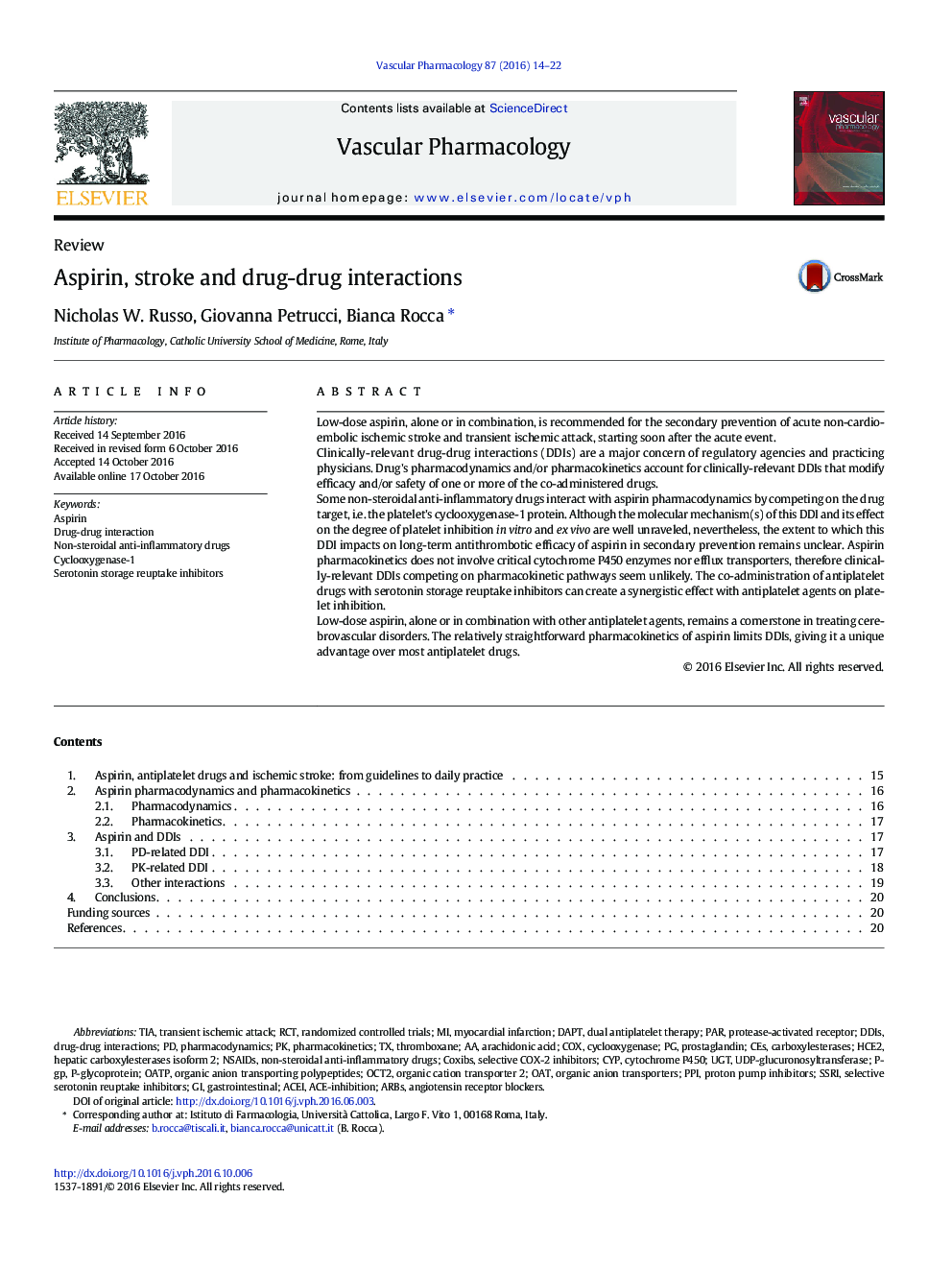| Article ID | Journal | Published Year | Pages | File Type |
|---|---|---|---|---|
| 5558906 | Vascular Pharmacology | 2016 | 9 Pages |
Low-dose aspirin, alone or in combination, is recommended for the secondary prevention of acute non-cardioembolic ischemic stroke and transient ischemic attack, starting soon after the acute event.Clinically-relevant drug-drug interactions (DDIs) are a major concern of regulatory agencies and practicing physicians. Drug's pharmacodynamics and/or pharmacokinetics account for clinically-relevant DDIs that modify efficacy and/or safety of one or more of the co-administered drugs.Some non-steroidal anti-inflammatory drugs interact with aspirin pharmacodynamics by competing on the drug target, i.e. the platelet's cyclooxygenase-1 protein. Although the molecular mechanism(s) of this DDI and its effect on the degree of platelet inhibition in vitro and ex vivo are well unraveled, nevertheless, the extent to which this DDI impacts on long-term antithrombotic efficacy of aspirin in secondary prevention remains unclear. Aspirin pharmacokinetics does not involve critical cytochrome P450 enzymes nor efflux transporters, therefore clinically-relevant DDIs competing on pharmacokinetic pathways seem unlikely. The co-administration of antiplatelet drugs with serotonin storage reuptake inhibitors can create a synergistic effect with antiplatelet agents on platelet inhibition.Low-dose aspirin, alone or in combination with other antiplatelet agents, remains a cornerstone in treating cerebrovascular disorders. The relatively straightforward pharmacokinetics of aspirin limits DDIs, giving it a unique advantage over most antiplatelet drugs.
Graphical abstractDownload high-res image (208KB)Download full-size image
